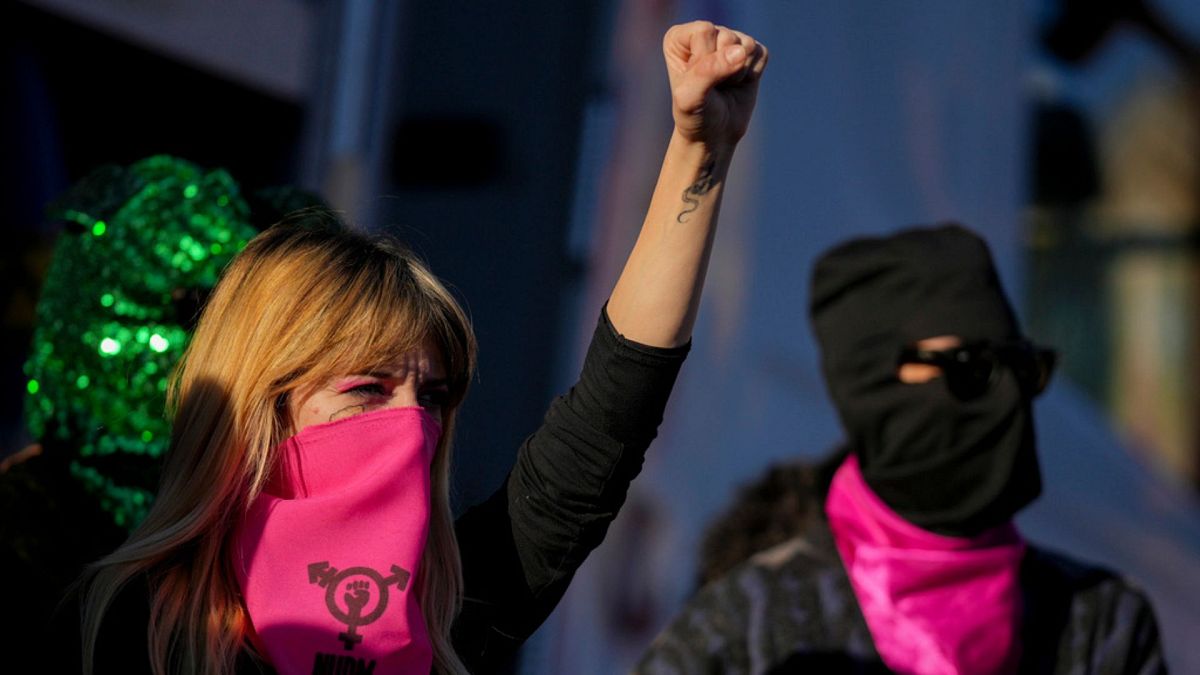Is illegal immigration to blame for rising sexual violence in Italy?

Italy’s education minister sparked widespread outrage after claiming that the rise in sexual violence in the country is linked to illegal immigration, while delivering a message to a foundation that honours a woman who was killed by her ex-boyfriend.
Italy’s education minister has sparked an outcry across the country after he claimed that Italy is seeing a rise in sexual violence due to illegal immigration.
Giuseppe Valditara’s comments were particularly controversial because he made them in a video message which was broadcast at the launch of a foundation honouring Giulia Cecchetin, the 22-year-old who was kidnapped and murdered her Italian ex-boyfriend last year, and a week before the International Day of Violence Against Women on 25 November.
“We must not overlook the fact that the rise in incidents of sexual violence is somehow linked to forms of marginalisation and perversion stemming from illegal immigration,” Valditara said in the video.
The message triggered backlash across Italy, including among the Cecchettin family.
Giulia’s sister Elena took to social media to praise her father for starting the foundation while also condemning Valditara.
“My father has done something extraordinary to prevent violence,” she said in an Instagram post. “What is the government doing? Giulia was killed by a respectable, white Italian man.”
Filippo Turetta has pleaded guilty to stabbing Cecchetin to death, in a trial that is entering its closing stages this week. He is due to be sentenced on 3 December and is hoping to avoid life imprisonment.
Italian politicians have also slammed Valditara for his comments at the Giulia Cecchetin Foundation launch.
Riccardo Magi, leader of the More Europe Party, said that official numbers contradict the idea that an increase in sexual violence is linked to illegal immigration.
“Data from the Interior Ministry clearly shows that more than 80% of femicides in Italy are committed by Italian citizens,” he said on X.
“Valditara should be ashamed. What he has done is nothing short of shameless racism, and he made these comments during the launch of a foundation dedicated to Giulia Cecchettin.”
There is a difference between sexual and gender-based violence, although the former is often a component of the latter. Official figures indicate that the vast majority of femicides in Italy are committed by other Italians.
According to Istat, Italy’s national statistics agency, the country saw 334 murders in 2023, up 3.7% from the year before.
Of the victims, 117 were women and 217 were men, and it’s the male victims who account for the overall increase — a 10.7% rise since 2022, compared to a 7.1% decrease in female victims.
Around 94.3% of the Italian women killed that year were victims of fellow Italians, according to the agency, and 43.8% of foreign women killed in Italy were victims of someone of the same nationality.
The number of women killed by a partner or ex-partner stood at 63.
According to Istat figures from earlier this year, most cases of rape were committed by people known to the victim.
The perpetrator was a partner in 62.7% of cases, a friend in 9.4% and a relative in 3.6%.
Data shows that most women who report suffering physical violence, such as slaps, punches, kicks, and bites, say it was a partner or an ex who caused it. On the other hand, sexual harassment is mostly perpetrated by strangers.
It’s also possible that reporting rates contribute to the idea that immigration makes sexual violence worse.
Only 4.4% of women who said they were raped by an Italian filed a complaint about the incident, compared to 24.7% if they claim it was a foreigner, according to Istat.
Data from the Interior Ministry show gender-based violence figures have tended to remain constant over time, although there is a slight upward trend.
Incidents of harassment increased from 18,724 in 2021 to 18,671 in 2022, and then to 19,538 in 2023.
In the same period, cases of mistreatment against family members and cohabitants rose from 23,728 in 2021 to 24,570 in 2022 and further increased to 25,260 in 2023.
Sexual violence incidents also saw a rise, from 5,274 in 2021 to 6,291 in 2022, before seeing a marginal drop to 6,230 in 2023.
The ministry also compared the period of January-June 2023 with January-June 2024. Acts of mistreatment saw a slight increase year on year, while sexual violence and harassment fell moderately.
World News || Latest News || U.S. News
Source link



